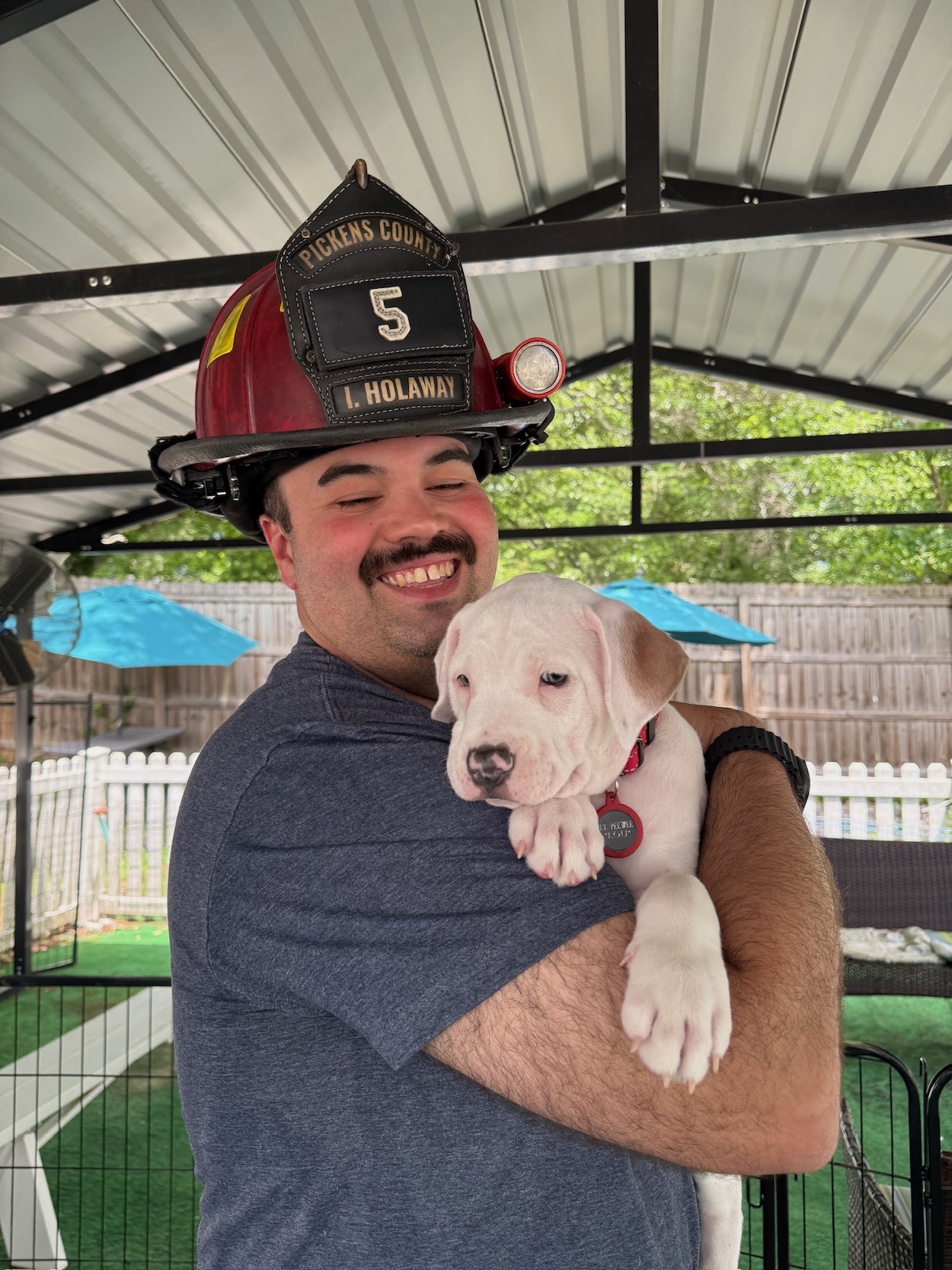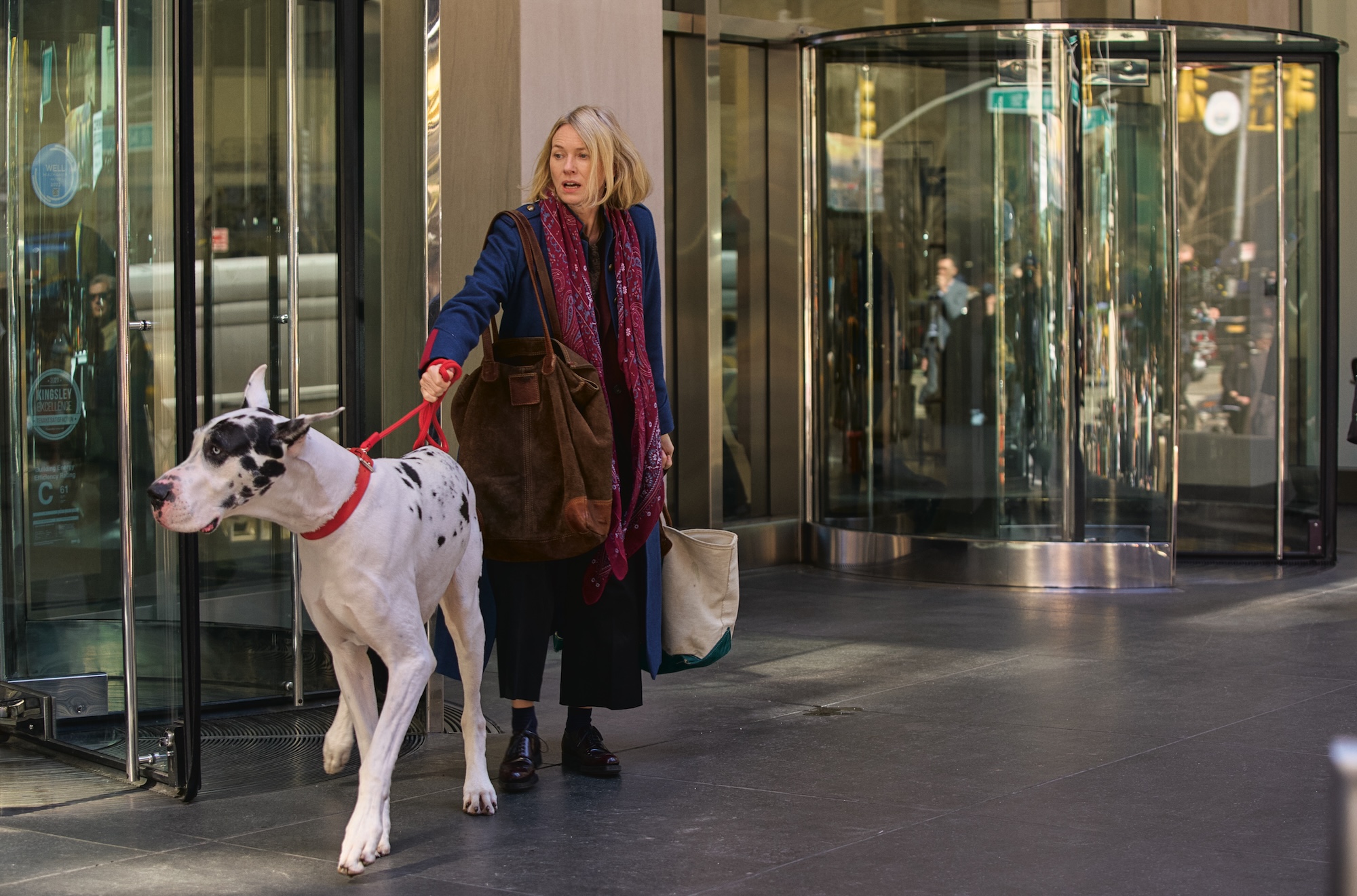Anyone who’s heard enough standup comedy knows that dating is hard. Searching for a suitable partner while taking care of a dog adds an additional challenge.
If you’re a dater with a dog, you’ll have to schedule around your pup’s needs, think about when to introduce your dog to suitors, and find someone who understands your dog’s role in your life.
To help you find the right fit, we spoke to a psychologist and a dog trainer. They offered tips on the best ways to keep yourself and your dog happy while you pursue human romance.
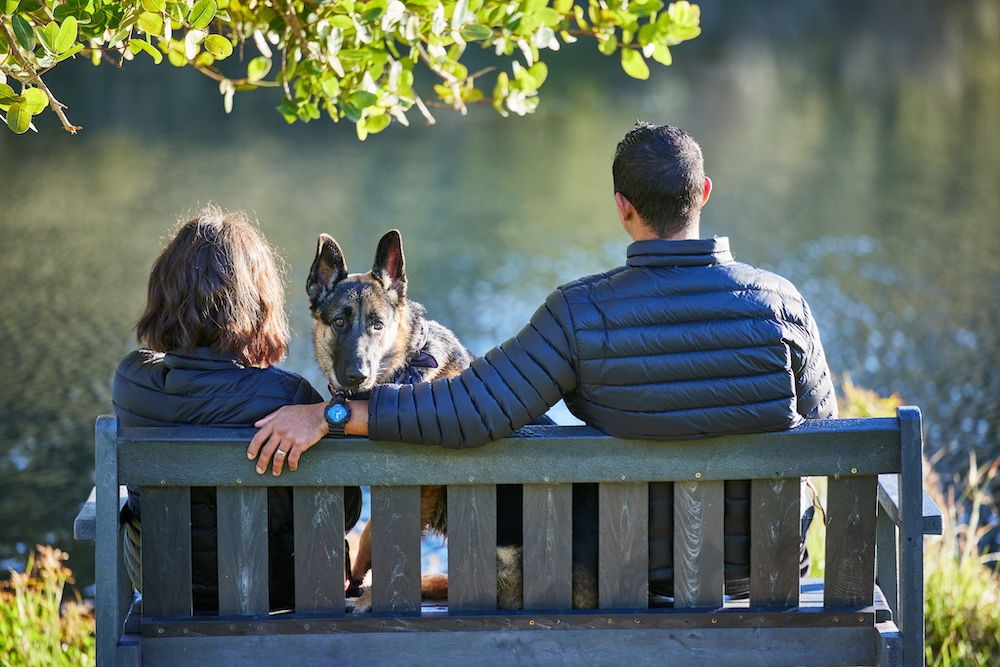
Scheduling
It’s obvious, but that doesn’t make it any less important: When you have a dog, you can’t be totally spontaneous. You can’t stay out all night or jet off for an unplanned weekend getaway without a reliable dog sitter. If you need more flexibility on a particularly long date, maybe you’ll have to stop at home for a bit to give your dog some playtime, a meal, and a walk. If you’re meeting for dinner on a weeknight after work, you may take a detour and attend to your buddy’s needs first.
“I would plan it,” says Farrah Branson, an animal training manager at Seattle Humane. “If you’re going to leave your dog for a few hours,” she says, “I would exercise them ahead of time and leave them with something yummy to chew on.” And if you do go on a trip, either bring your dog along safely or leave them with a responsible dog-sitter you trust.
While this isn’t convenient, dog people know that a dog’s love more than makes up for the logistical hurdles posed by their care. And prioritizing dog care also gives you an opportunity to get to know your date better, and for them to understand you more.

They have to understand: you’re a dog person
When weighing the merits of a potential match, you’ll likely contemplate many factors—some very common, and others more specific to you. Do you share values? Do you feel like you can be yourself around them? Do you laugh together, or are they wrong about what’s funny? For dog-loving daters, this list will include: Do they like dogs?
Potential partners don’t necessarily have to share your obsession with dogs, but should respect the bond you have with your favorite pup. Dr. Miriam Jayaratna, a clinical psychologist and writer in New York City who is a co-parent to a neurotic corgi of her own, recommends that dog people who are dating be up-front about their canine-centric lifestyles.
“Unless you are planning on rehoming your dog, which I hope no one is,” she says, “you’re trying to presumably attract somebody who—even if they’re not a dog person—can at least be respectful of the priority of taking care of your dog.”
It’s fine and even advisable to have one-on-one time with someone you’re dating; but if they’re getting annoyed that you want to make sure your four-legged pal has enough food, exercise, mental stimulation, and love, that might be a sign that you don’t agree on what constitutes a good life or relationship.
“I think it actually sets up a bad situation,” says Dr. Jayaratna, “if you sort of act like your dog doesn’t have needs because you’re trying to impress somebody and be super accommodating at the beginning of the relationship—and once you’re ‘cuffed’ or things are more serious, pull back and say to them, ‘Well, actually, I do need to do these things for the dog.’ That could be a real setup for disaster, because they won’t have seen it coming. I think a great way to gauge if somebody is compatible with your lifestyle is to let them see fairly early on what that consists of.”
There’s no use in wasting your time or anyone else’s by pretending to be someone you’re not, to say nothing of the strain it could put on your dog. Still, Dr. Jayaratna says, being honest doesn’t mean letting everything out at once. Perhaps, she offers, “They don’t need to hear the voice that you use when you talk to your dog” in the heat of a romantic moment.
Making introductions
When your dog meets someone you’re dating, it’s tempting to use the dog’s reaction as a glimpse into that person’s character—but Dr. Jayaranta thinks it’s better to prepare the new human as well as you can for a positive interaction with your best friend.
She suggests laying out your dog’s preferences, telling the person what the dog likes in an approach and what they don’t. “Giving the person all the tools in advance rather than testing them” is a good idea, she says, “because a lot of people just don’t know, and are genuinely trying their best to make a connection.”
Branson advises letting a dog choose whether to approach someone they don’t know well, never forcing them to get closer than they want, proceeding slowly and only with consent, and being aware that dogs may be more apprehensive around “larger bodies and deeper voices.” Your date will have to use the same caution any new person would with a dog. As Branson explains: “[Your dog is] not going get the context of, ‘by the way, this person’s very important—I met them on Tinder.’”
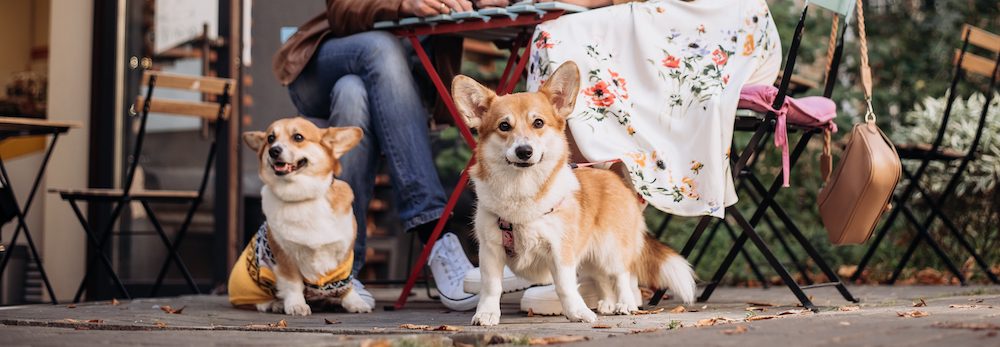
Sleeping arrangements
If your dog sleeps in your bed, you’re not alone. Not only because your dog is there, but also in the sense that surveys commonly find most dog people let their pups sleep with them. If you invite someone into your home, however, they may feel differently than you do about having a pup under the covers.
“I think with a lot of disagreements it comes down to who feels more strongly,” says Dr. Jayaranta, while offering the caveat that “obviously, if it’s always one person [who feels more strongly], that’s a problem.” But she says that a conflict over where the dog sleeps may come down to this question: “Is it more problematic for your partner to share a bed with the dog, or is it more upsetting for you to take your dog out of the bed on the nights when your partner is there?”
Of course, you should also think about how the dog will feel. Life situations change, and dogs can adapt to new circumstances. But it’s your job to help them do so in a way that they don’t find scary or otherwise upsetting.
“If you’re going to be having people sleep over,” says Branson, “it might be worth working with the dog to have another spot where they feel comfortable sleeping. Maybe a bed near your bed where they can be—so they can just make choices.” She recommends working up to this, and not ambushing your dog on the day of a sleepover after they’ve been in your bed 400 nights in a row. “I would try to have that happen at least a couple of times prior,” she says. “I would try to get them nice and cozy on a bed or in a kennel; still in the room would be ideal.”
As long as you prepare your dog mindfully and they seem comfortable with the shift, you don’t need to fret that an evening on the dog bed will hurt their feelings.
“If your dog isn’t going to sleep in bed with you and you put them in their own bed with a huge Kong with peanut butter in it,” says Dr. Jayaranta, “I don’t think they’re going to feel like you don’t like them personally.”
Parenting conflicts
If an other becomes more significant in your life, you’ll have someone else to observe and criticize your dog-care technique. How you respond to such criticisms may depend in part on their substance, when they arise, and whether they directly concern your partner.
“If the other person has entered the dynamic in a way that feels like they’re an equal partner and participant in the household,” says Dr. Jayaranta, “then they do have a say—and things that you may have been used to being executive decisions become discussions.”
On the other hand, if your date has a lot of comments about your dog’s behavior the first time they set foot in your home, the situation could be more complicated. If they’re just being pushy, you might want to let them know that you’ve got a handle on things. But try to take an honest look at whether they have a point, especially if the behavior in question has a real impact on them.
“If somebody says ‘I’m having a hard time with how much your dog barks whenever I try to kiss you,’” says Dr. Jayaranta, “that’s understandable—because it’s actually preventing things from moving forward, as opposed to somebody just making a more general critique about some random thing with your dog that doesn’t seem like it would have any bearing on them at all.”
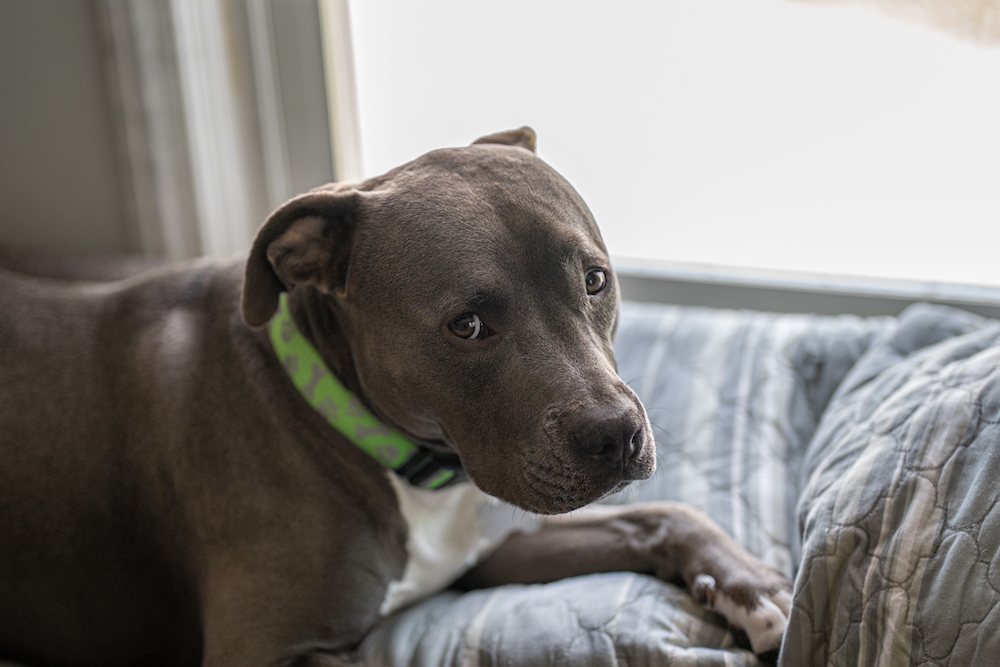
Custody
Unfortunately, not all new relationships are built to last. When you’ve been taking care of a dog together, there’s another living being whose welfare you’ll have to weigh as you navigate your lives apart from one another.
The law increasingly recognizes that dogs’ feelings matter. A 2021 New York State law says that family courts should consider the best interest of a companion animal in custody cases, instead of treating them merely as property without needs of their own. That could mean that the dog stays in one place where they’re comfortable, or it could mean spending time with both partners.
“Think of the dog instead of just yourself,” says Branson. “If the dog has a relationship with both people, it’s nice to continue to have both people in their life.” This may not always be possible, but she says she’s “seen really great co-parenting situations” in which, while a dog has one “core home,” they see both of their humans regularly.
When you’re gauging whether a custody situation is making your dog happier or stressing them out, observe their body language and behavior. Branson suggests asking yourself: “Can they rest comfortably at night? Are they pacing? Are they eating well while they’re there? Those kinds of things are what I’d be watching for.” Strive to give your dog a consistent routine, and adjust if they’re sending signals that they’re in distress.
Letting your dog spend time with an ex can be difficult if you’d rather keep your distance from them. Dr. Jayaratna recommends staying on task when you interact so that it doesn’t lead to your lives becoming enmeshed in ways you’re trying to avoid.
“I would really try to keep the focus on the shared responsibility of taking care of this animal,” says Dr. Jayaratna. “It’s at least one thing you both still have in common, even if there were other differences that led to the relationship not working.”
